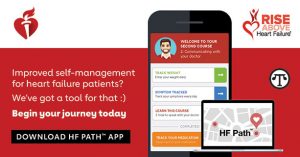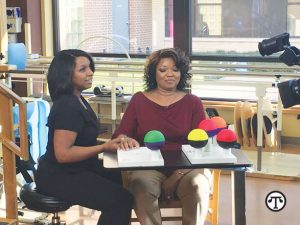 (NAPS)—The flu is nothing to sneeze at. According to the Centers for Disease Control and Prevention (CDC), influenza has resulted in between 9.2 million and 35.6 million illnesses annually since 2010. The best way to stay out of such statistics, the CDC says, is for everyone who is eligible and at least 6 months old to get a flu shot as soon as the vaccine becomes available.
(NAPS)—The flu is nothing to sneeze at. According to the Centers for Disease Control and Prevention (CDC), influenza has resulted in between 9.2 million and 35.6 million illnesses annually since 2010. The best way to stay out of such statistics, the CDC says, is for everyone who is eligible and at least 6 months old to get a flu shot as soon as the vaccine becomes available.
To help, all CVS Pharmacy and MinuteClinic locations have the vaccine available seven days a week with no appointment needed.
Study Shows
That may be just as well, since the annual survey, conducted online by Harris Poll on behalf of CVS Pharmacy [1], found that two-thirds of those surveyed get a flu vaccine every year or plan to get one this year, a 5 percent increase from last year. [Read more…]
 (NAPSI)—Whether changing the oil, replacing the wiper blades or checking the tires, finding the time to perform simple preventative vehicle maintenance is money in the bank.
(NAPSI)—Whether changing the oil, replacing the wiper blades or checking the tires, finding the time to perform simple preventative vehicle maintenance is money in the bank. A study by the American Heart Association shows people with HF report spending more time on managing their condition; free app aims to make it easier
A study by the American Heart Association shows people with HF report spending more time on managing their condition; free app aims to make it easier (NAPSI)—Stroke is a leading cause of long-term disability—in fact, it’s even more disabling than it is fatal. The period following a stroke can be difficult for patients and their loved ones, as they grapple with the uncertainties of recovery.
(NAPSI)—Stroke is a leading cause of long-term disability—in fact, it’s even more disabling than it is fatal. The period following a stroke can be difficult for patients and their loved ones, as they grapple with the uncertainties of recovery. Cracker Jack and Lane Loury getting used to each other. Lane is 18 months and is getting his second lesson from his mother Lindsay. Photo taken by Debbie Sykes, grandmother.
Cracker Jack and Lane Loury getting used to each other. Lane is 18 months and is getting his second lesson from his mother Lindsay. Photo taken by Debbie Sykes, grandmother.
